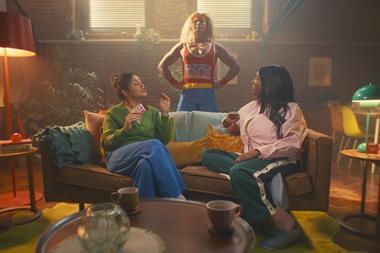After the emotional trauma of watching Philip get his marching orders from Sir Alan Sugar AND Chelsea go out to Barca in the Champions League (a f**king disgrace on both counts), I was in no fit state for my usual American crime procedural.
So I switched over from Drogba turning the air blue to farmers turning the past sepia (Mud, Sweat and Tractors, 9pm, BBC4, 6 May).
The fourth and final episode in the beguiling series charting the recent history of British agriculture told the story of how beef cattle farming has changed over the past 80 years.
Narrated by Brian from The Archers and interspersed with footage of idyllic farming scenes from yesteryear, at times the one-hour programme plodded - but that didn't make it any less fascinating.
Who knew the size of cattle had changed so dramatically! Apparently, in the late 19th century our native Aberdeen Angus and Hereford cattle were the same size as they are now. But they got steadily smaller in the first few decades of the 20th century because of interwar demand for smaller joints and the burgeoning South American market. And by 1939, the once shoulder-high animals only came up to a stockman's waist, much to the amusement of the modern farmers featured perusing old photos and footage of relatives standing beside the calf-sized beasts.
After the war, the race was on to breed larger cattle, so Continental draught animals were brought in and crossbred with British breeds. The upshot of all this intensive farming was that the meat, having previously been full of flavour but too fatty, was leaner but less tasty.
It was this and the body blow of BSE in the mid-80s that sparked the revival of native breeds (largely grass-fed so less associated with the disease) taking the industry almost full circle. Or so this hour-long eulogy would have you believe.
If there was one criticism I had, it was that it presented a rather too cowpat version of events. The impact of BSE was under-played and the role of Waitrose in restoring the fortunes of native brands over-played. But it was a minor quibble about a programme that, ironically given the subject matter, was pleasantly bullshit-free.
So I switched over from Drogba turning the air blue to farmers turning the past sepia (Mud, Sweat and Tractors, 9pm, BBC4, 6 May).
The fourth and final episode in the beguiling series charting the recent history of British agriculture told the story of how beef cattle farming has changed over the past 80 years.
Narrated by Brian from The Archers and interspersed with footage of idyllic farming scenes from yesteryear, at times the one-hour programme plodded - but that didn't make it any less fascinating.
Who knew the size of cattle had changed so dramatically! Apparently, in the late 19th century our native Aberdeen Angus and Hereford cattle were the same size as they are now. But they got steadily smaller in the first few decades of the 20th century because of interwar demand for smaller joints and the burgeoning South American market. And by 1939, the once shoulder-high animals only came up to a stockman's waist, much to the amusement of the modern farmers featured perusing old photos and footage of relatives standing beside the calf-sized beasts.
After the war, the race was on to breed larger cattle, so Continental draught animals were brought in and crossbred with British breeds. The upshot of all this intensive farming was that the meat, having previously been full of flavour but too fatty, was leaner but less tasty.
It was this and the body blow of BSE in the mid-80s that sparked the revival of native breeds (largely grass-fed so less associated with the disease) taking the industry almost full circle. Or so this hour-long eulogy would have you believe.
If there was one criticism I had, it was that it presented a rather too cowpat version of events. The impact of BSE was under-played and the role of Waitrose in restoring the fortunes of native brands over-played. But it was a minor quibble about a programme that, ironically given the subject matter, was pleasantly bullshit-free.













No comments yet